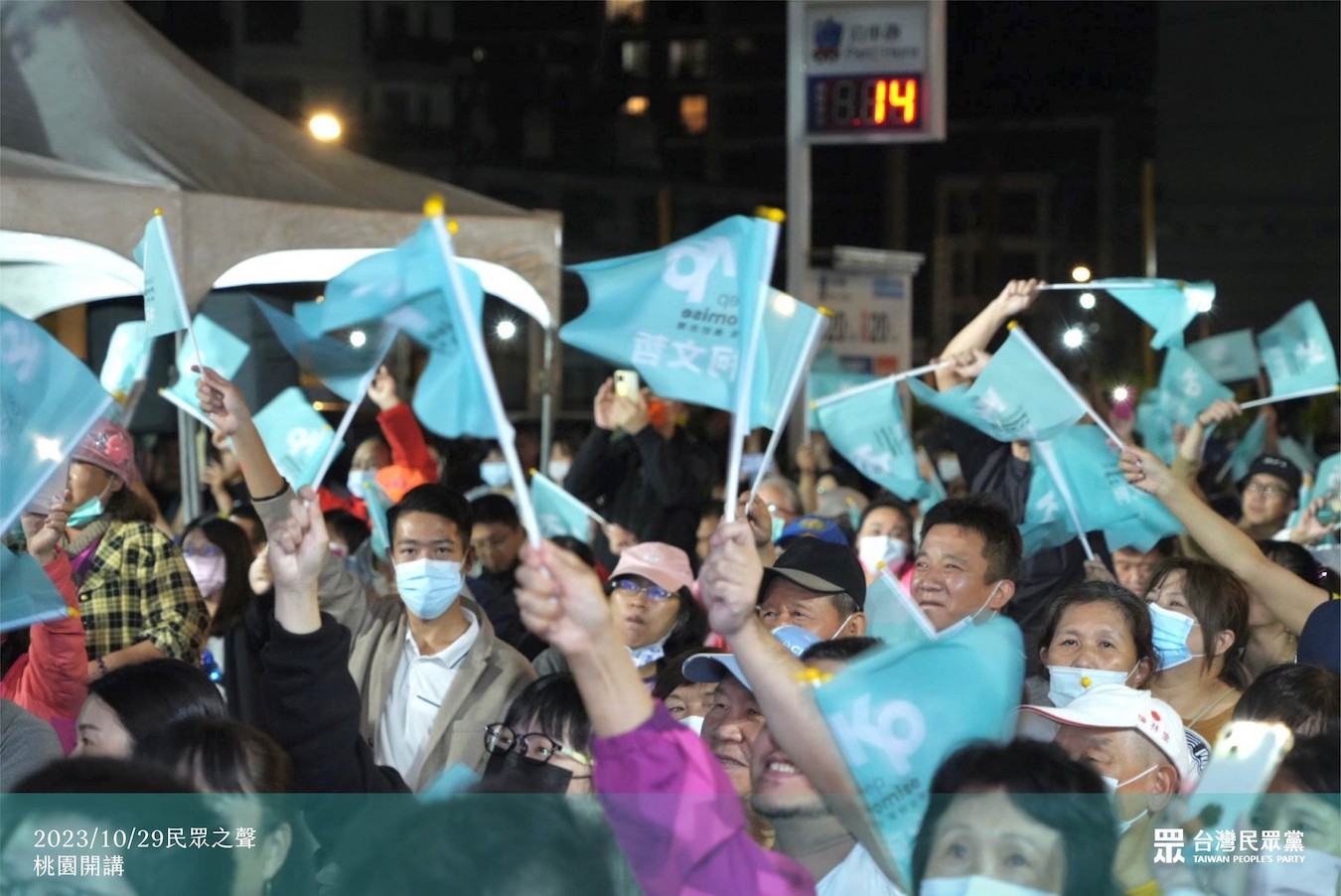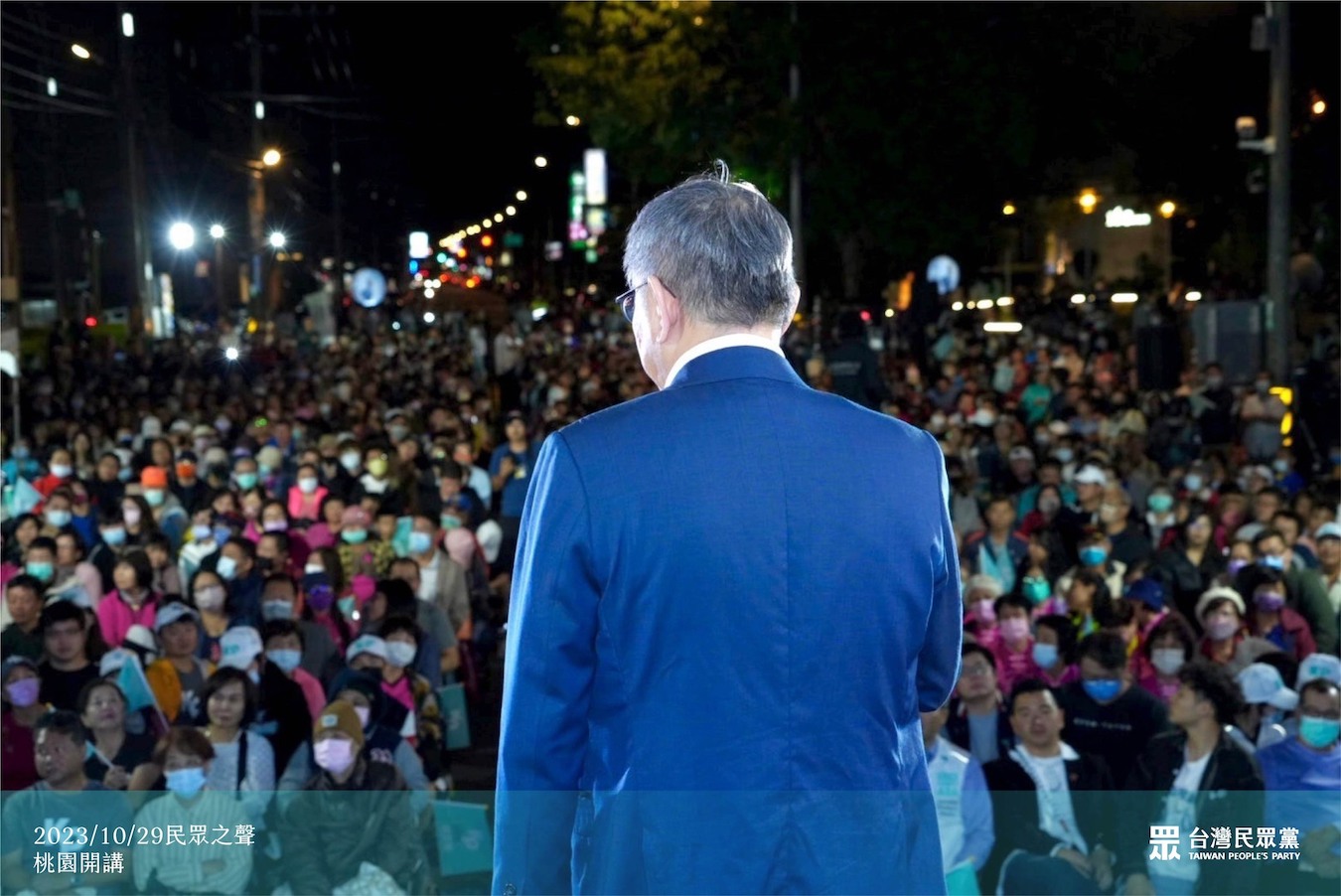by Brian Hioe
語言:
English
Photo Credit: TPP/Facebook
THE TPP HAS come under fire for a possible party list candidate that the DPP claims to have formerly been a CCP member. The prospective candidate in question is Xu Chunying, the chair of the Taiwan New Residents Development Association, which advocates for the rights of foreign-born spouses in Taiwan. Xu is naturalized to Taiwanese nationality through marriage to a Taiwanese man.
TPP chair Ko Wen-je and the party as a whole have not confirmed if the party intends to run Xu or not, though her possible candidacy has already become the center of a political firestorm. Ko currently claims that Xu was floated as a possible candidate.
In the meantime, Huang Shan-shan, who served as the TPP’s candidate for Taipei mayor in 2022 elections and is currently the director of Ko’s campaign, has criticized the DPP as discriminatory and suggested that the DPP is being hypocritical. In particular, Huang’s defense of Xu has centered around the claim that Ning Jia-rong, who was named by the DPP to a committee about the rights of foreign-born spouses, was also a former CCP member.
 Photo credit: TPP/Facebook
Photo credit: TPP/Facebook
The DPP’s criticisms of Xu’s nomination take place at a time of sensitivity regarding what information is available to pan-Blue legislators. Such issues have been centered in Taiwanese politics after KMT legislator Ma Wen-chun was accused of leaking classified information on Taiwan’s domestic submarine program to China and South Korea.
Ma was accused of seeking to get in the good graces of China by leaking information to China. This would not be the first time that Taiwan has faced issues with leaks about military secrets, with former generals and other high-ranking military officials accused of doing the same, sometimes motivated by a pan-Chinese sense of nationalism and in other cases because of financial incentives offered by the Chinese government. Yet penalties for spying in Taiwan have generally been weak, with penalties for drug charges often being stiffer. To this extent, Ma was accused of seeking to block successive budgets for Taiwan’s domestic submarine program and leaking information about the program to the South Korean government in order to obstruct efforts by Taiwan to obtain the necessary key technology for developing submarines.
It is less common for the issue of military secrets being leaked to China to be linked to the political issue of Chinese spouses in Taiwan. With the rising number of foreign-born “New Residents” in Taiwan, both political camps have sought to appeal to them as a growing demographic. Nevertheless, pan-Green backlash against the prospect of opening Taiwan up to more Hongkongers in past years–with the claim that this could potentially allow Chinese spies to mix in with Hongkongers–illustrates how there is growing anxiety about immigration to Taiwan possibly allowing for Chinese spying in Taiwan. The DPP may be embracing these concerns to appeal to voters, raising the question of whether the DPP is embracing an anti-immigrant stance when it comes to individuals from places under the control of the CCP.
 TPP chair and presidential candidate Ko Wen-je. Photo credit: TPP/Facebook
TPP chair and presidential candidate Ko Wen-je. Photo credit: TPP/Facebook
Either way, the TPP embracing the issue of Chinese-born spouses proves a case in which the TPP is taking on a stance traditionally embraced by the KMT, which has historically positioned itself as the political party in Taiwan that wishes to protect the rights of Chinese spouses. The TPP, likewise, sought to distinguish itself from the KMT as a “lighter blue” party that is not as hardline on pro-unification issues compared to the KMT. But at a time in which the TPP at least publicly floated the idea of electoral cooperation with the KMT and has vowed to cooperate with it in legislative, if not presidential, elections, the TPP may be increasingly willing to embrace traditional stances of the pan-Blue camp. Indeed, the TPP draws its politicians largely from former pan-Blue politicians that are from the KMT, PFP, or New Party, and so this is not entirely surprising.
Ironically, DPP legislator Chao Tien-lin recently dropped his re-election due to reports of his having had an affair with a Chinese woman. To criticize the DPP as hypocritical in light of the scrutiny on Ma, the KMT alleged that Chao could have potentially passed on secrets to this woman, with the Ministry of Justice stating that it is looking into the allegations. This proved an odd allegation from the KMT, again, seeing as the party has historically vowed to stand for the rights of Chinese spouses in Taiwan. Yet as the controversy regarding Xu illustrates, the issue remains contentious in such a way that the DPP would go on the offense against the TPP over having a Chinese spouse who may be a CCP member as a candidate.

